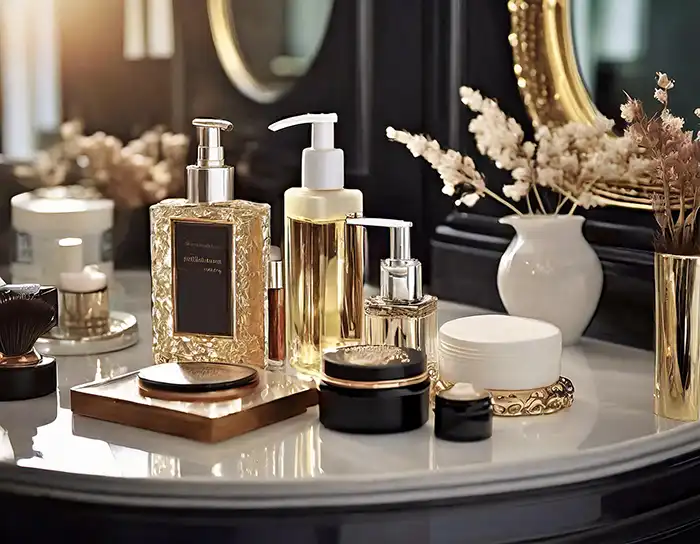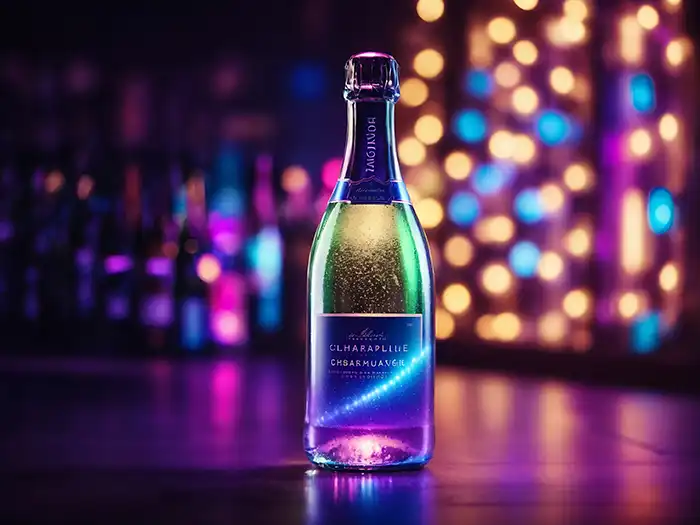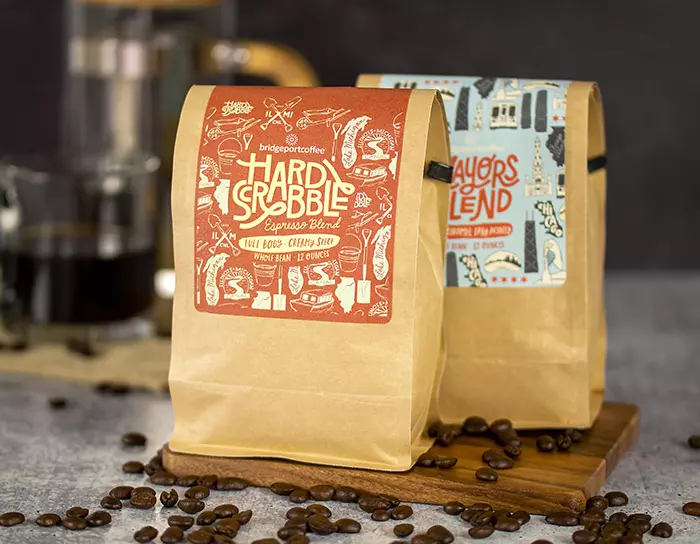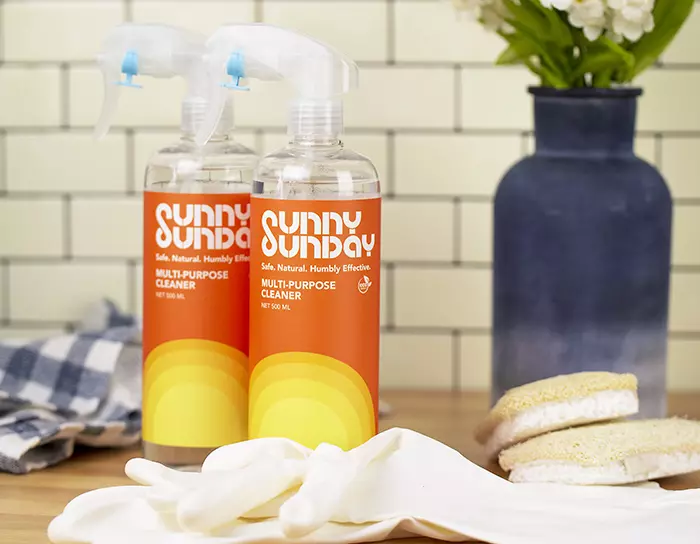Need help? We’re here!
Our expert customer service team is ready to help you with any questions or concerns you may have. Real time help is available Monday through Friday 9AM - 6PM EST- (888) 391-7165
- Chat live with support
- support@sheetlabels.com

In an era where fast fashion reigns supreme, luxury labels stand as beacons of craftsmanship and timeless style. Unlike their mass-produced counterparts, these brands are synonymous with exclusivity, offering pieces that promise not only to elevate your wardrobe but to become heirlooms. Yet, navigating the world of high-end fashion can feel like deciphering a complex code, reserved for those in the know. This post aims to bridge that gap, shedding light on what makes luxury labels worth the investment and how you can incorporate them into your life. Whether you're a seasoned collector or a curious newcomer, understanding the allure behind these prestigious names will transform your approach to personal style.
Luxury labels refer to high-end brands that offer products or services of superior quality and price. These brands are known for their exclusivity, craftsmanship, and prestige. They cater to a clientele that values not just the product but the experience and status associated with owning it.
Luxury labels often use the finest materials and employ meticulous handcrafting techniques. This ensures each item is not just durable but also embodies a sense of uniqueness and elegance. The branding strategies of these labels focus on creating an aura of desirability, often through limited editions or by being inaccessible to the general public.
The concept of luxury has been around for centuries, evolving alongside society's changing tastes and economic conditions. In the 19th century, with the advent of industrialization, certain brands began to distinguish themselves by offering high-quality goods. This was the birth of modern luxury labels.
Paris became a hub for these burgeoning brands, with names like Louis Vuitton and Hermès establishing themselves in the mid-1800s. Their success laid down the blueprint for what would become the luxury industry. Over time, other cities like Milan, London, and New York also became centers for luxury fashion.
Luxury labels significantly influence both the global economy and consumer trends. They drive innovation in design and manufacturing processes, setting standards that trickle down to more accessible markets. Moreover, luxury brands contribute substantially to global retail sales, with billions of dollars in revenue each year.
Their marketing strategies set trends that affect not just fashion but lifestyle choices across various demographics. For instance, a single luxury brand's endorsement can make sustainability or ethical sourcing a mainstream concern practically overnight.
How consumers view luxury labels is complex and multifaceted. For some, these brands represent aspirational goals; owning a piece from a luxury label signifies success or social status. For others, it's about appreciating craftsmanship and heritage—acknowledging the artistry behind each piece.
However, perceptions are shifting. Younger generations prioritize experiences over possessions and are more conscious about issues like sustainability and ethical production practices. Luxury brands have had to adapt by emphasizing their commitment to these values without compromising on quality or exclusivity.
Luxury labels carry a significant brand value that sets them apart. They symbolize status and success. This is not just about the logo or the price tag. It's about the story, heritage, and craftsmanship behind each piece. These brands invest heavily in marketing to maintain their prestigious image. As a result, owning a product from such labels becomes a statement.
They also ensure consistency across all touchpoints. From boutique design to customer service, everything reflects the brand's core values. This holistic approach strengthens their position in the market.
One key aspect that luxury labels pride themselves on is unmatched quality. These brands often use superior materials and pay attention to the finest details during production. For instance, hand-stitching in leather goods and high-grade metal in watches are norms.
Quality control is rigorous. Each item undergoes several checks before reaching the customer. This ensures durability and functionality, making each purchase a long-term investment. Customers trust these brands for their commitment to excellence.
Exclusivity plays a crucial role in the allure of luxury labels. By producing limited quantities or offering bespoke services, they create a sense of rarity. This not only adds value to their products but also makes them highly sought after.
Such strategies include invitation-only events and first-access to new collections for VIP customers. They make consumers feel part of an elite group, enhancing their shopping experience.
Luxury brands excel at building strong customer loyalty. They achieve this through personalized experiences and exceptional after-sales services. Whether it’s offering repair services for vintage pieces or personal shopping assistants, these brands go above and beyond for their clients.
Loyalty programs reward customers with exclusive perks and previews of upcoming collections. These initiatives foster a deep connection between the brand and its clientele.
Luxury brands have a story to tell. They weave tales of heritage, craftsmanship, and exclusivity. This narrative creates a backdrop against which their products shine. For instance, a handcrafted watch isn't just about telling time; it's a piece of history on your wrist. Each product becomes a character in a larger saga of luxury.
They also use customer stories to add depth. When consumers see how others cherish the brand, they envision themselves in those shoes. It’s not just about owning an item; it's about entering a prestigious club.
The saying "a picture is worth a thousand words" holds especially true for luxury labels. High-quality images and videos are paramount. They showcase the product's fine details, from the stitching on a leather bag to the sparkle of diamonds in jewelry. These visuals don’t just describe the product; they make you feel its allure. For more on this topic read Luxury Label Design: Use Your Product Label to Achieve a High-end Look
Moreover, luxury brands often employ minimalist design in their content. This simplicity puts the focus squarely on the product, elevating its status even further.
Luxury brands excel at forging an emotional bond with their audience. They tap into desires for status, beauty, and quality. A luxury car ad might not talk much about horsepower or fuel efficiency. Instead, it will show how driving the car makes you feel powerful and admired.
This connection goes beyond individual products. Brands cultivate an aura that reflects on their customers. Owning something from these labels makes people feel like they’re part of an exclusive world.
In today’s market, authenticity is key for luxury labels. Consumers seek brands with genuine stories and ethical practices. They value sustainability and craftsmanship over mass production.
Brands highlight their dedication to quality by sharing behind-the-scenes looks at their creation processes. This transparency builds trust and reinforces the brand’s prestige.
Keyword research is the foundation of any successful SEO strategy, especially for luxury brands. It involves identifying terms that potential customers use when searching for high-end products or services. For luxury labels, this means focusing on long-tail keywords with a high purchase intent rather than generic, broad terms. These long-tail keywords are less competitive and more specific to the unique offerings of luxury brands.
By integrating these carefully selected keywords into their website content, luxury brands can attract a targeted audience ready to invest in premium products. Tools like Google's Keyword Planner and SEMrush offer valuable insights into search volume and competition levels, helping brands refine their keyword strategy.
After crafting prestigious content, optimizing it becomes crucial. Content optimization for luxury brands goes beyond inserting keywords; it's about maintaining the brand's prestige while improving visibility. This means ensuring that product descriptions, blog posts, and other web content are not only keyword-rich but also reflect the brand's tone and style.
Images and videos should be of the highest quality, showcasing products in a way that appeals to the target audience's desire for exclusivity and elegance. Metadata, including title tags and meta descriptions, should be compelling and incorporate primary keywords to improve click-through rates from search engine results pages.
User experience (UX) plays a significant role in retaining visitors on a luxury brand's website. High loading speeds, mobile responsiveness, and intuitive navigation are non-negotiable elements of effective UX design. Luxury brands must ensure their online presence mirrors the exclusivity and quality of their offline boutiques.
A seamless browsing experience encourages visitors to explore more pages, reducing bounce rates and increasing the likelihood of conversion. Incorporating interactive elements like 360-degree product views can further enrich the user experience, making online shopping as immersive as visiting a physical store.
Link building is essential for enhancing a luxury brand’s online authority. Acquiring backlinks from reputable sites within the fashion industry or luxury lifestyle blogs can significantly boost a website's domain authority. These links act as endorsements, signaling to search engines that the content is valuable and trustworthy.
Luxury brands should focus on building relationships with influencers, journalists, and editors who cater to their target demographic. Guest posting on high-profile sites or collaborating on exclusive events can generate high-quality backlinks, driving both traffic and credibility to the brand’s site.
Luxury labels set themselves apart through unique design elements. These elements are more than just visual appeal; they tell a brand's story. Bold patterns, intricate details, and signature shapes make each piece recognizable. For instance, the distinctive check pattern of Burberry or the iconic monogram of Louis Vuitton. They serve as a hallmark of quality and exclusivity.
Incorporating these designs requires a deep understanding of brand heritage. It also demands creativity to keep them fresh for modern consumers.
The choice of materials plays a crucial role in distinguishing luxury items from regular products. Luxury brands use high-quality materials like fine leather, silk, and cashmere. These materials not only offer superior feel and durability but also ensure that the product stands out.
For example, Hermes is known for its use of premium leathers, making their bags highly sought after. The material quality directly contributes to an item's luxury status, making it a key aspect of product uniqueness.
Craftsmanship is at the heart of luxury labels. It involves meticulous attention to detail and skilled handiwork that machines cannot replicate. This human touch adds immense value to each item, making it unique.
Brands like Chanel are renowned for their craftsmanship, especially in their hand-stitched garments and accessories. This level of craftsmanship ensures that no two pieces are exactly alike, adding to the allure of luxury items.
Innovation keeps luxury brands relevant and desirable. It involves introducing new technologies, sustainable practices, or groundbreaking designs that set trends rather than follow them.
Gucci's move towards sustainability with its eco-friendly lines is a prime example. Innovation in this context doesn't just mean new product features but also how brands adapt to changing consumer values while maintaining their luxurious essence.
Luxury labels have found a goldmine in social media platforms. They use these spaces to showcase their products and connect with their audience. Instagram, with its visual focus, stands out as particularly effective. Here, brands post high-quality images and stories of their luxury items, emphasizing their uniqueness. This strategy not only highlights the product's exclusivity but also keeps the brand in constant conversation with its followers.
Facebook and Twitter serve as additional platforms for customer engagement. Through posts and tweets, luxury labels share news, events, and behind-the-scenes content. This approach makes the brand more relatable and strengthens customer loyalty.
Teaming up with influencers has become a crucial strategy for luxury brands. These partnerships allow labels to reach wider audiences in an authentic way. Influencers often have followers who trust their opinions highly. When they recommend a luxury product, it can significantly boost its visibility and desirability.
Brands carefully select influencers whose image aligns with their values. This ensures that the partnership feels natural to both the influencer’s audience and the brand’s existing customers. The collaboration might include sponsored posts, product placements, or even co-designed collections.
With advancements in technology, luxury labels are creating immersive online experiences. They host digital showcases that present new collections through virtual reality (VR) or augmented reality (AR) experiences. These platforms offer a unique way for customers to view products from anywhere in the world.
Digital showcases also include live-streamed fashion shows or 3D product views on websites. This allows customers to see every detail of a product as if they were examining it in person. It's an innovative approach that combines convenience with a sense of exclusivity.
Luxury brands often sponsor high-profile events to enhance their online presence further. These events range from fashion weeks to exclusive parties and art exhibitions. Sponsoring such events places the brand at the center of significant cultural moments.
Event sponsorships are usually accompanied by extensive online coverage through social media posts and live streams. This gives those who cannot attend in person a chance to experience the event virtually. It also links the luxury label with prestigious events, enhancing its image as an elite brand.
Luxury labels thrive on exclusivity and prestige. Yet, they must balance this with transparency to build trust. Sharing detailed information about materials, craftsmanship, and the origins of products is essential. This openness helps customers appreciate the value behind high price tags.
Transparency also means being upfront about pricing. Luxury brands should explain why their products cost what they do. They should detail the craftsmanship involved and the quality of materials used.
Customer reviews are a goldmine for building trust in luxury labels. Positive feedback from satisfied buyers can sway potential customers more than any marketing campaign. Luxury brands should encourage their customers to share their experiences online.
They must address negative reviews promptly and professionally. This shows that they value customer satisfaction above all else. A well-handled complaint can even turn a dissatisfied customer into a loyal advocate.
Exceptional after-sales service sets luxury labels apart from other brands. It's not just about selling a product; it's about nurturing a relationship with the buyer long after the purchase. Offering repairs, maintenance, or even personal styling advice adds tremendous value.
This level of care ensures that customers feel valued and respected. It reinforces their decision to invest in a luxury brand.
Engaging with the community both online and offline is crucial for luxury labels aiming to build trust. Brands should participate in social causes and events relevant to their audience’s interests and values.
Online forums, social media platforms, and exclusive events allow luxury labels to connect directly with their customers. These interactions foster a sense of belonging among customers, making them feel part of an exclusive club.
Luxury labels thrive on their unique market positioning. They target a niche audience, often the affluent and fashion-forward consumers. These brands distinguish themselves through superior craftsmanship, heritage, and exclusivity. For instance, while one brand may position itself as the epitome of classic elegance, another might be the avant-garde icon of modern luxury. This differentiation helps them stand out in a crowded marketplace.
Positioning also involves storytelling. Brands weave rich narratives around their products, emphasizing their history and craftsmanship. This creates an emotional connection with their customers, reinforcing loyalty.
In the realm of luxury labels, pricing tactics go beyond simple cost-plus strategies. Prices are set to reflect the brand's prestige, quality, and exclusivity. High price points serve a dual purpose: they reinforce the perception of luxury while ensuring high profit margins.
e brands employ price skimming, launching products at high prices that only the most eager and affluent buyers will pay. Over time, prices may drop to attract a slightly broader audience without diluting the brand's luxurious appeal.
Luxury labels constantly innovate their product offerings to stay relevant and desirable. Limited editions and capsule collections create urgency and exclusivity. They often feature innovative designs or collaborations that can't be found elsewhere.
Moreover, customization has become a key offering for many luxury brands. It allows customers to personalize products to their tastes, making each item unique. This not only enhances customer satisfaction but also strengthens the emotional bond between the brand and its patrons.
Brand collaborations are a strategic move for luxury labels seeking to expand their reach and appeal to new audiences without compromising their identity. Collaborating with artists, designers from different fields, or even other brands can result in buzzworthy collections that generate significant media attention and customer interest.
These partnerships often bring together contrasting aesthetics or combine expertise from different domains, resulting in innovative products that capture the public's imagination. For example, a high-end fashion label collaborating with a tech company can produce a luxury smartwatch that marries style with functionality.
Luxury brands are now embracing sustainability. They understand their customers' growing concern for the environment. Many are using recycled materials in their products. Others are adopting eco-friendly manufacturing processes. This shift not only helps the planet but also enhances brand image. Customers feel good about purchasing these luxury items, knowing they're making a positive impact.
Luxury retailers are minimizing waste by producing smaller quantities. They focus on quality over quantity. This approach reduces excess inventory and promotes a culture of exclusivity.
The digital world is reshaping luxury retail. Brands that once relied on physical stores are now venturing online. They're using cutting-edge technology to create virtual showrooms. Here, customers can explore and buy products from the comfort of their homes.
E-commerce platforms are becoming more sophisticated too. They offer personalized shopping experiences through AI and data analytics. This makes shopping online as personal and engaging as visiting a store in person.
Today's luxury shoppers want items that reflect their unique style and personality. As a result, personalization has become key in luxury retail. Brands offer custom-made products and services to meet this demand. For example, customers can have their initials engraved on handbags or choose specific colors for their watches.
This trend extends beyond products to the shopping experience itself. Luxury brands use customer data to tailor recommendations and communications. This makes every interaction feel special and curated just for them.
Luxury brands are looking beyond their traditional markets for growth opportunities. They're expanding into emerging economies where wealth is growing rapidly. Countries like China, India, and Brazil are seeing an increase in luxury consumption.
To succeed in these new markets, brands must understand local cultures and preferences and adapt accordingly . They often collaborate with local artists or influencers to create region-specific collections.
In the realm of luxury, every detail contributes to the narrative of exclusivity and refined taste. Among these, the choice of label material stands as a testament to a brand's commitment to quality and its allure. Below, we spotlight five premium label materials that redefine luxury, ensuring that your products not only captivate but also communicate the essence of sophistication to your discerning clientele.

Dazzling the eye with its prismatic effects, the Rainbow Holographic material embodies innovation and allure. Perfect for health and beauty products, this label catches the light and the attention of customers, promising an unforgettable unboxing experience. Its resistance to water, oil, and moisture secures its place in the luxury segment, making every product it adorns a shimmering beacon of exclusivity.

Evoking a sense of timeless elegance, the Classic Crest Felt White material stands out for its exquisite texture and sophisticated appeal. This label material is engineered to add a touch of luxury to premium bottles, its textured surface enhancing the vibrancy of colors and making every detail pop. Designed for those who appreciate the finer things, it ensures your product is not just seen, but felt.
.webp)
With its sleek silver finish, the Silver BOPP label material speaks to the modern luxury consumer. Resistant to water, oil, and moisture, and boasting a "mirror-like" appearance, it's the ideal choice for products seeking to make a bold, contemporary statement. This material is a favorite for candles, wines, and nutraceutical products, reflecting quality and innovation.
More great metallic label ideas:
The Best Uses of Metallic Labels
 Premium, woven, and unmistakably rustic, Estate #9 labels carry the legacy of luxury. Tailored for wine bottles, beer bottles, and spirits packaging, this material with its beautiful cream appearance and exceptional wet strength, promises elegance and resilience. The vibrancy and saturation of colors on this material are unparalleled, ensuring that your branding, like your product, is in a class of its own.
Premium, woven, and unmistakably rustic, Estate #9 labels carry the legacy of luxury. Tailored for wine bottles, beer bottles, and spirits packaging, this material with its beautiful cream appearance and exceptional wet strength, promises elegance and resilience. The vibrancy and saturation of colors on this material are unparalleled, ensuring that your branding, like your product, is in a class of its own.
Estate is more textured/artisan looking. The print can appear a little more washed out for a more antique-ish look.
 The Spectacle® White Matte material is a paragon of luxury label materials, setting the standard with its high-quality finish and perfect print results. Ideal for brands seeking to project an image of high-end sophistication and detail-oriented craftsmanship, this label material guarantees that your product stands out in the crowded luxury market. Its matte finish and strong adhesive qualities ensure that it is as durable as it is beautiful, embodying the pinnacle of luxury branding.
The Spectacle® White Matte material is a paragon of luxury label materials, setting the standard with its high-quality finish and perfect print results. Ideal for brands seeking to project an image of high-end sophistication and detail-oriented craftsmanship, this label material guarantees that your product stands out in the crowded luxury market. Its matte finish and strong adhesive qualities ensure that it is as durable as it is beautiful, embodying the pinnacle of luxury branding.
Each of these label materials has been carefully selected for their unique properties and ability to elevate the luxury experience. Incorporating them into your product design not only enhances the visual appeal but also communicates to customers the unparalleled quality and exclusivity of your brand. In the competitive landscape of luxury goods, these labels are your silent ambassadors, conveying a message of sophistication and discerning taste.
Spectacle is hard and smooth, so that your label print is crisp and has more saturation
Luxury labels aren't just about the high-end price tag; they're a statement of prestige and quality that sets you apart. We've walked you through understanding these brands, from crafting content that resonates with an elite audience to SEO strategies that put your products in the spotlight. Highlighting product uniqueness and enhancing your online presence are key, just as building customer trust and keeping an eye on competitors can provide invaluable insights. With the future of luxury retail always evolving, staying ahead means adapting and innovating.
Now's your chance to shine in the luxury market. Use these insights to elevate your brand, engage with your sophisticated audience, and carve out your unique space in the world of luxury labels. Don't just follow trends—set them. Ready to take your luxury label to the next level? Let's make it happen together.
Luxury labels represent brands that offer high-end, often handcrafted products, emphasizing quality, exclusivity, and prestige. They cater to an audience seeking superior craftsmanship and unique experiences.
Luxury brands maintain their prestige through consistent quality, limited availability, exceptional service, and storytelling that resonates with their audience's aspirations. They focus on creating an exclusive brand image that stands out in the market.
Crafting content for luxury brands requires a deep understanding of the brand's identity, audience desires, and the art of storytelling. Content should evoke emotions, highlight exclusivity, and reflect the brand’s luxurious nature to engage effectively with its target market.
SEO helps luxury brands by increasing visibility among a targeted audience actively searching for high-end products or services. Effective SEO strategies ensure these brands appear at the top of search results, thereby attracting potential customers looking for luxury experiences.
Product uniqueness is vital for luxury items as it sets them apart from competitors and adds to the perceived value and desirability of the product. It reinforces the brand’s exclusive status and appeals to consumers seeking one-of-a-kind goods.
Luxury brands can enhance their online presence by optimizing their website for SEO, engaging with audiences on social media platforms, offering exclusive online content, and utilizing digital advertising strategically to reach a wider yet targeted audience.
Customer trust is paramount in luxury retail as it builds loyalty and encourages repeat business. Luxury brands earn trust by delivering consistent quality, providing excellent customer service, protecting customer privacy, and authentically engaging with their community.